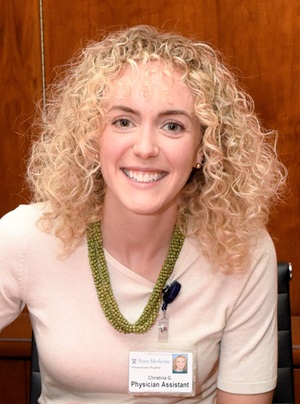 Research plays an essential role in exploring new ideas and making discoveries. In health care, research can shape the way treatments are conducted or create new ones to better improve patient care. The research workgroup, a subcommittee of Pennsylvania Hospital’s (PAH) Diversity, Equity, and Inclusion (DEI) committee, is applying that spirit of investigation to find more and better ways that research at PAH can support greater equity in health care and more diversity among those who conduct research.
Research plays an essential role in exploring new ideas and making discoveries. In health care, research can shape the way treatments are conducted or create new ones to better improve patient care. The research workgroup, a subcommittee of Pennsylvania Hospital’s (PAH) Diversity, Equity, and Inclusion (DEI) committee, is applying that spirit of investigation to find more and better ways that research at PAH can support greater equity in health care and more diversity among those who conduct research.
“Much of how clinicians use demographic information to make clinical decisions is being evaluated and needs more research,” Christina Gehman, PA-C, physician assistant, said. “For example, eGFR, a determinant of renal function, has classically been calculated based on an individual’s race, and new research is showing the standard equations may not be helpful or accurate anymore.”
Gehman serves as the chair of the research workgroup, which has been identifying ways to support a more diverse culture of research at PAH.
“We hope to encourage those performing research to look at data through a lens of equity or diversity, as far as the populations that are studied,” said Gehman. “We also hope to inspire and help more individuals to become researchers, particularly those who have been traditionally underrepresented in that space.”
To better inform staff about DEI-related research, the workgroup is currently planning a Grand Rounds presentation with the Education workgroup, another subcommittee of the DEI Committee. They will present past and present studies on issues in health equity that have been conducted at PAH, which investigated disparities such as misconceptions and miscommunications that can affect care for Spanish-speaking Latinas with pelvic floor disorders, orthopaedic complications affecting obese patient populations, and data on socioeconomic status and race as determinants of surgical interest and outcomes.
In addition, the workgroup hopes to pilot a research mentoring campaign, increasing access to research opportunities for individuals unfamiliar with navigating the research process, and creating a guideline on how to best conduct DEI-related research.
“Getting involved in research isn’t just for the most learned, scientific minds,” said Gehman. “What we need are people who are curious and committed to asking questions in order to improve care for all of our patients.”